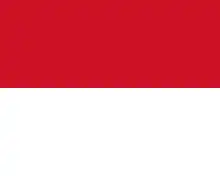| Founded | 2002 |
|---|---|
| Founder | Rotterdam Zoo Dr. Dirk Petersen |
| Focus | Coral reef conservation |
| Method | research education outreach restoration |
Key people | Dr. Dirk Petersen Mike Brittsan, M.Sc. |
| Website | http://www.secore.org |
SECORE (SExual COral REproduction) is an international non-profit organization focused on coral reef conservation. The group has over sixty supporters in North America, Europe and Japan, and comprises public aquariums, institutes, and universities. Founded in 2001 at the Rotterdam Zoo in the Netherlands, the organization has been developing methods of captive coral reproduction and preservation,[1] citing studies that have predicted coral reefs could be extinct within decades due to climate change.[2]
Background
Based on the coral reproduction research of Dirk Petersen at the Rotterdam Zoo (The Netherlands), SECORE was born in 2002. Petersen's findings led to innovative techniques on the use sexual coral reproduction for coral reef conservation. Established by the aquarium community and coral conservation scientists, SECORE initially focused on ex situ conservation and later as well on reef restoration (in situ conservation).
In 2004, Mike Brittsan, M.Sc., of the Columbus Zoo & Aquarium joined SECORE to take over the leading role in the USA. Over the years, both institutions, the Rotterdam Zoo and the Columbus Zoo & Aquarium – in collaboration with other organisations – started a very successful workshop program not only to train experts in the SECORE techniques, but also to bring different institutions together for a common goal – help saving the greatest marine ecosystem on our planet, the coral reef. SECORE supports excellent science in various fields, such as coral restoration, coral population genetics or coral cryopreservation.
Together with its more than 60 supporting partner institutions, SECORE reaches millions of people to spread the word about the dramatic situation of our ocean and what we can do about it. In 2018, they were subject of coverage from VICE News for their work in the coral reefs of Curacao. [3]
Supporters
Asia
 Ochanomizu University
Ochanomizu University Marine Research Station Layang Layang
Marine Research Station Layang Layang
Europe
 The Deep
The Deep National Marine Aquarium
National Marine Aquarium Aquarium La Rochelle
Aquarium La Rochelle Océanopolis
Océanopolis Aquazoo – Löbbecke Museum in Düsseldorf
Aquazoo – Löbbecke Museum in Düsseldorf Cologne Zoo
Cologne Zoo Hagenbeck Zoo
Hagenbeck Zoo Ruhr University Bochum
Ruhr University Bochum University of Duisburg-Essen
University of Duisburg-Essen Wilhelma Stuttgart
Wilhelma Stuttgart Acquario di Genova
Acquario di Genova Musee Oceanographique
Musee Oceanographique Artis Zoo
Artis Zoo Burgers Zoo
Burgers Zoo Rotterdam Zoo
Rotterdam Zoo Wageningen University
Wageningen University Oceanario de Lisboa
Oceanario de Lisboa Planet Neptune Aquarium
Planet Neptune Aquarium Zoo Aquarium de Madrid
Zoo Aquarium de Madrid The Maritime Museum and Aquarium in Gothenburg
The Maritime Museum and Aquarium in Gothenburg Skansen-Akvariet
Skansen-Akvariet
North America
.svg.png.webp) Curacao Sea Aquarium
Curacao Sea Aquarium Audubon Aquarium of the Americas
Audubon Aquarium of the Americas Aquarium in Moody Gardens
Aquarium in Moody Gardens Berkshire Museum Aquarium
Berkshire Museum Aquarium Birch Aquarium at Scripps
Birch Aquarium at Scripps Columbus Zoo and Aquarium
Columbus Zoo and Aquarium Dallas Aquarium at Fair Park
Dallas Aquarium at Fair Park Discovery World
Discovery World Downtown Aquarium, Houston
Downtown Aquarium, Houston The Florida Aquarium
The Florida Aquarium Georgia Aquarium
Georgia Aquarium Hawaii Institute of Marine Biology
Hawaii Institute of Marine Biology Houston Zoo
Houston Zoo Indianapolis Zoo
Indianapolis Zoo Minnesota Zoo
Minnesota Zoo National Aquarium in Baltimore
National Aquarium in Baltimore National Aquarium in Washington, D.C.
National Aquarium in Washington, D.C. National Zoological Park (United States)
National Zoological Park (United States) New England Aquarium
New England Aquarium North Carolina Aquarium at Fort Fisher
North Carolina Aquarium at Fort Fisher North Carolina Aquarium at Pine Knoll Shores
North Carolina Aquarium at Pine Knoll Shores Omaha's Henry Doorly Zoo
Omaha's Henry Doorly Zoo Pennsylvania State University
Pennsylvania State University Pittsburgh Zoo & PPG Aquarium
Pittsburgh Zoo & PPG Aquarium Point Defiance Zoo & Aquarium
Point Defiance Zoo & Aquarium Seattle Aquarium
Seattle Aquarium Seaworld Orlando
Seaworld Orlando Seaworld Texas
Seaworld Texas Shedd Aquarium
Shedd Aquarium University of Houston
University of Houston Virginia Living Museum
Virginia Living Museum Virginia Marine Science Museum
Virginia Marine Science Museum
See also
References
- ↑ Elleker, Lindsay. "U of A researcher helps save endangered coral". University of Alberta. Archived from the original on 2011-11-29. Retrieved 2010-01-30.
- ↑ "Expedition on corals and global warming in Puerto Rico". University of Pennsylvania - Office of University Communications. Archived from the original on August 19, 2014. Retrieved 2010-01-30.
- ↑ "Scientists Are Breeding Super Coral That Can Survive Climate Change - VICE on HBO". VICE News. Archived from the original on 2021-12-15. Retrieved 2019-04-02.
External links
- SECORE website
- SECORE Workshop Curacao 2011
- Mary Hagedorn and Mike Henley. Rearing Elkhorn coral at the National Zoo
- Acropora palmata larve video, Coralscience.org
- Pennisi E. 2007. Reefs in trouble - spawning for a better life. Science 318(5857):1712-1717.